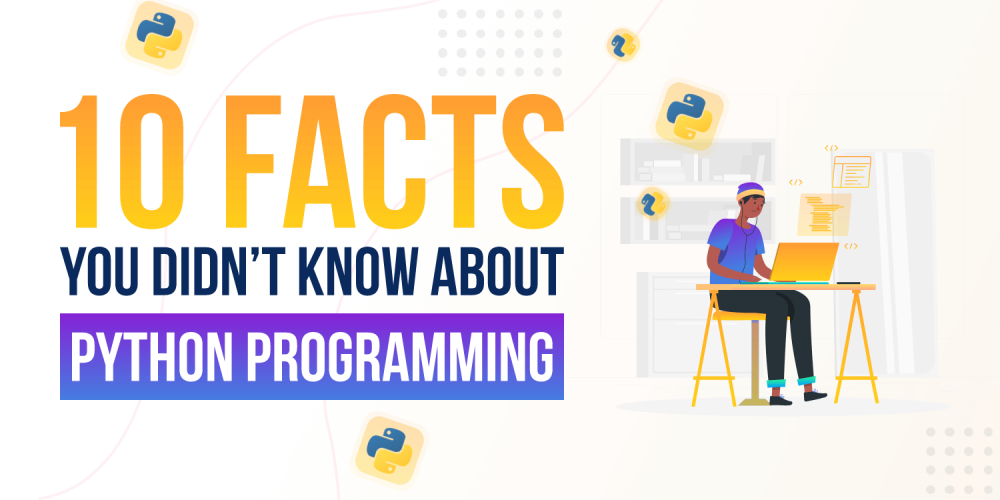
10 Interesting Facts About Python Programming Language
Why is it called 'Python'?
This is the first unique feature of this language. Why was the name 'Python' chosen over any other? Was there a connection between the creator of this language and the python snake?
The name of this language, according to its creator Guido Van Rossum, is derived from the British comedy series "Monty Python's Flying Circus." The comedy was broadcast on the BBC in the 1970s and provided entertainment for the creator during the language's development. In addition, Van Rossum desired a name that was both brief and mysterious. He wants a name that will capture the attention of everyone.
Python has overtaken French in primary schools
This one sound funny, doesn't it? Believe it or not, Python surpassed French as the most popular language taught in primary schools in 2015. According to statistics, six out of ten parents would rather see children learn Python than French. This demonstrates that a large number of people recognized the value of Python programming. According to the same statistics, 75% of primary school-aged children preferred to learn how to control a robot over learning French.
Python is self-contained and does not require a compiler
Python does not require a compiler because it is a high-level and interpreted language. This is in contrast to Java and C++, which must first be compiled before being interpreted. Python makes use of a program known as an interpreter.
Python byte code is stored in a.pyc file and is then executed by a virtual machine. This machine serves as the Python run-time engine.
Python is a free and open source programming language
Python, despite its enormous popularity, is an open source language. This means it possesses all of the characteristics of an open source language. It does not come with a proprietary license that restricts its use.
Python is an open source language, which means that members of the Python community are welcome to contribute to the Python ecosystem.
Python is available in C and Java variants
Despite the fact that Python is a self-contained programming language, it has variants for the C and Java programming languages. The C variant, dubbed CPython, was created to provide Python with the advantages of C. Performance is one of these characteristics. The variant can function as both an interpreter and a compiler.
Jython is the Java implementation of Python. It enables some critical aspects of Java, such as productivity, to run on a virtual machine.
Python is more like English
Numerous people assert that Python is an easy-to-read language. The primary reason for this assertion is that Python is more similar to English. You can easily decipher what each line of code does. Everything is straightforward and concise.
Python is one of Google's official programming languages
Are you aware that Python is one of Google's official programming languages? Due to the language's efficiency and portability, it has become an integral part of Google. It is a simple language to learn, even when working on large and complex projects.
Python powers a variety of products, including Google Search and YouTube. Numerous Google APIs and libraries are written in Python.
Python is not a pointer-based language
Python, in contrast to other programming languages, does not support pointers. Rather than that, objects are passed via reference.
Python is extremely versatile
Python allows you to create virtually anything. The language is suitable for web development, mobile application development, artificial intelligence (AI), machine learning, big data analytics, and internet of things applications.
Function unpacking
This is yet another fascinating aspect of Python programming. You can quickly decompress a list of all the functions you've used.
Courses and Cerfitifcation
Python Deep Learning Course and Certificate
Python Design Pattern Course and Certificate
Python Data Structure Course and Certificate

